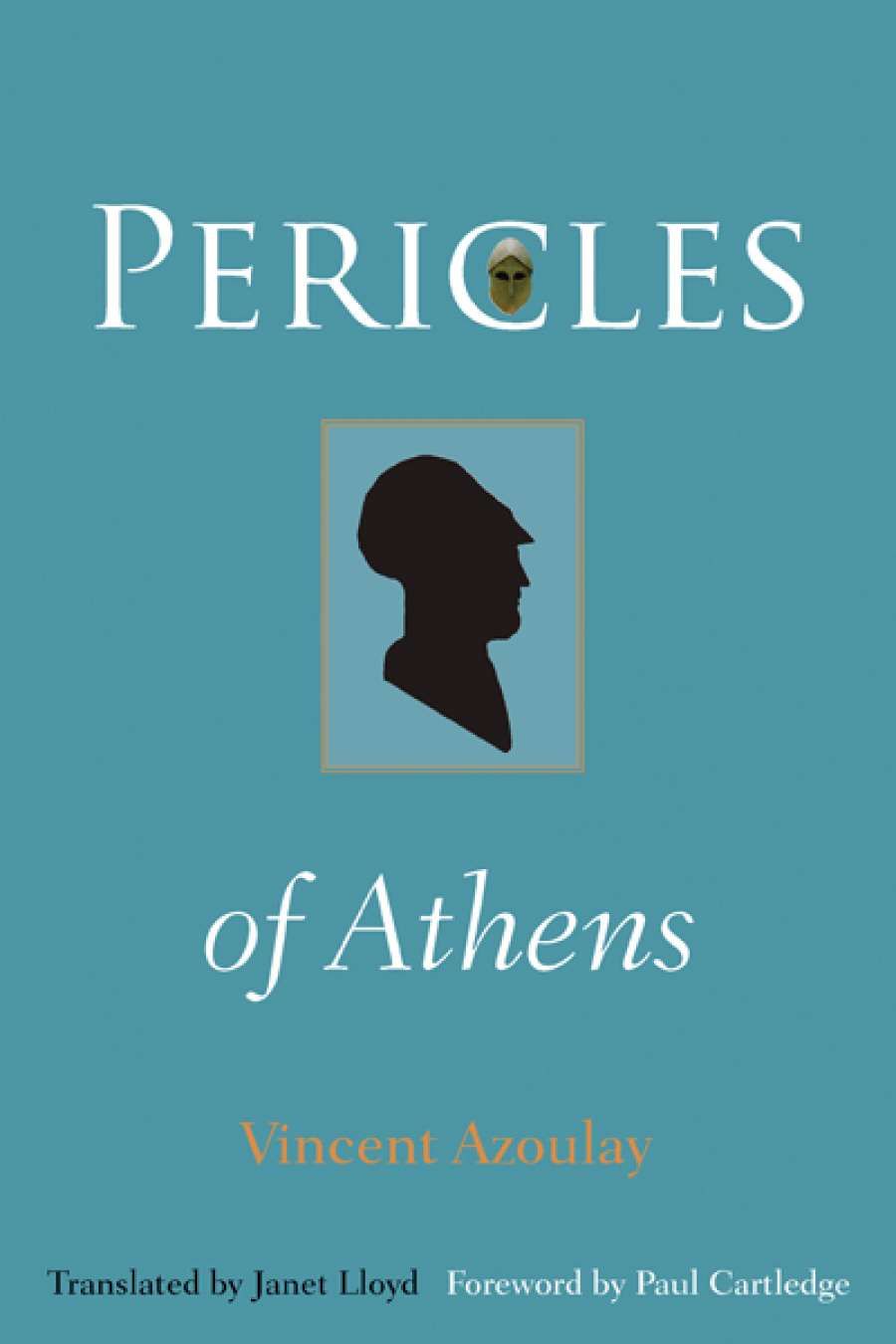
- Free Article: No
- Contents Category: Classics
- Custom Article Title: Peter Acton reviews 'Pericles of Athens' by Vincent Azoulay translated by Janet Lloyd
- Review Article: Yes
- Online Only: No
- Book 1 Title: Pericles of Athens
- Book 1 Biblio: Princeton University Press (Footprint), $92.95 hb, 305 pp, 9780691154596
This rollercoaster of an afterlife clearly reflected current preoccupations of commentators, but also the unusual amount of material available to both prosecution and defence, setting a special challenge to an objective biographer. As Azoulay points out, the task is made harder by the tendency of history to ascribe famous events to famous contemporaries, whether or not they had anything to do with them. Thus the evidence that Pericles was associated with the reforms of Ephialtes is slight (and that he murdered him, slighter still). Athens’ questionable treatment of its allies was part of a policy that preceded and survived him, rather than Pericles’ own particular strategy, and he only appears to have been responsible for a small portion of the building program that carries his name. His oratorical skills in articulating the rationale for these policies almost certainly led posterity to assign him a more determining role than he actually had. Plutarch seemed to think he had the power of a Caesar, rather than of a politician who had to stand for office every year.
‘Brilliant orator, fearlessly committed to the truth, or dangerous sophist saying whatever the mob wanted to hear?’
Azoulay’s response to these challenges is to set reports about Pericles in their political context, an approach that pays splendid dividends. Athens had deposed its tyrants fifteen years before Pericles’ birth, and public sentiment through the fifth century combined a terror of new tyrannies with concerns about mob rule in the evolving democracy – a tricky tightrope for any statesman to walk. Few politicians managed to avoid banishment at some point in their career, a fate that befell the once admired Themistocles and Cimon, as well as Pericles’ father. In this fraught and distrustful environment, even Pericles’ endowments were two-edged: his ancestry was respectable but his family’s activities during the tyranny were, at best, ambiguous. He was careful to avoid speculation and conspicuous personal expenditure, but his inherited wealth still left him open to accusations of nepotism, corruption, and favouring oligarchy. His major policies were all opposed at various times by different factions or ambitious individuals. His treatment of Athens’ allies seemed unjustifiably harsh to some, necessary to others. His intelligent military strategy (avoid land conflict – even at the cost of losing all of Attica outside the city – and fight at sea) was represented by his enemies as pusillanimous at best, treacherous at worst. Others complained that he was using the public purse to gain popularity by providing jobs through the building program. His oratorical powers in defending all these policies were easily represented as sophistry. The fact that he was elected strategos fifteen times (fourteen of them in succession) shows his skill in maintaining the trust of a highly suspicious citizenry. Azoulay’s exposition of this remarkable achievement is fascinating and compelling.
Just two passages detract from its excellence. As is the case with many historians of ancient times, Azoulay’s grasp of economic matters is weaker than his political insight. He seems unaware of conceptual developments in ancient economic history since the nineteenth century, and his assertion that oikonomia was focused almost exclusively on agriculture would surprise Xenophon and at least two of Aristotle’s pupils. More puzzling is the erroneous claim in the last paragraph that Pericles’ career holds no lessons for us today. Si monumentum requiris, circumspice.


Comments powered by CComment